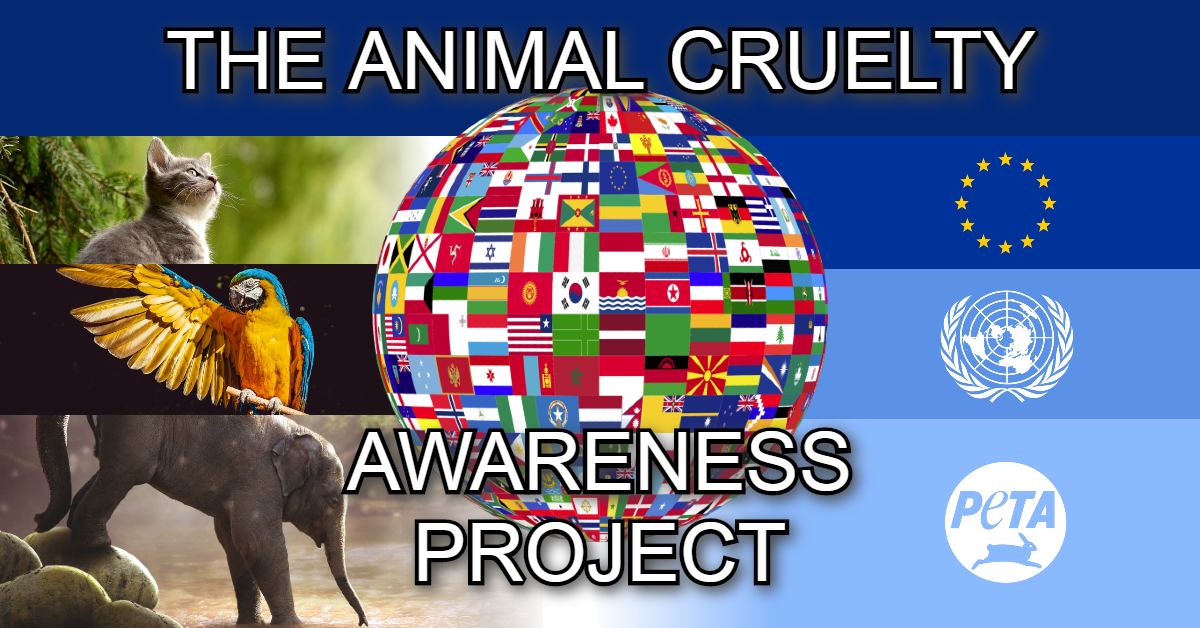Animal cruelty is a harrowing reality that transcends geographical boundaries, impacting every facet of our interconnected world. From the rural pastures where cattle are raised to the metropolitan habitats where domesticated animals reside, instances of abuse emerge in every corner. These occurrences not only inflict suffering upon the animals but also reverberate through various layers of human society, fostering a pervasive culture of indifference and violence.
This article delves into the multifaceted consequences of animal cruelty on a global scale, exploring the societal, ecological, and psychological ramifications that stem from these acts of violence against sentient beings. The ramifications of neglect and malice extend far beyond individual victims, creating a ripple effect that influences the health, safety, and outlook of entire communities.
Societal Implications
Animal cruelty is often a precursor to broader societal issues, including violence against humans. Numerous studies establish a correlation between animal abuse and domestic violence, drawing attention to the troubling trend of individuals who perpetrate harm against animals displaying increased propensity for violence toward other humans. The implications of this connection are significant; communities that overlook animal welfare may inadvertently foster an environment where violence is normalized.
This insulation from empathy for animals inadvertently stunts the emotional and moral development of younger generations. When children witness or participate in acts of cruelty—whether it be through neglect, exploitation, or outright violence—these formative experiences shape their understanding of compassion, empathy, and respect for life. The lack of acknowledgment for animal suffering can stifle a culture of kindness, leading to an altogether dispassionate worldview.
Economic Consequences
Beyond the social repercussions lies the economic dimension of animal cruelty. The treatment of animals within various industries, such as agriculture, entertainment, and research, often prioritizes profit over humane practices. The exploitation of animals for financial gain perpetuates cycles of abuse, as institutions eschew the investment required for ethical treatment in favor of maximizing output and minimizing costs.
Consequently, this neglect can result in costly ramifications for society. The emergence of zoonotic diseases, which can transmit from animals to humans, underscores the direct implications of animal mistreatment. High-density farming practices, entrenched in a disregard for animal welfare, facilitate the spread of illnesses that can jeopardize public health, leading to costly healthcare crises.
Moreover, as awareness proliferates around the globe regarding the ethical treatment of animals, industries that rely on outdated practices face mounting pressures from consumers. The demand for cruelty-free products is rising, compelling businesses to reevaluate their operational strategies. Resistance to this paradigm shift can yield reputational damage and financial loss as consumers gravitate towards ethically sound alternatives.
Environmental Ramifications
Animal cruelty is inextricably linked to environmental degradation, a relationship often overlooked in discussions about abuse. Factory farming practices typically involve detrimental impacts on ecosystems, including deforestation for grazing lands, pollution from waste runoff, and depletion of local water sources. In pursuing profit margins through intensive animal agriculture, industries inflict profound damage on biodiversity and natural habitats.
This exploitation can result in a cascade of ecological disasters; the disruption of ecological balance often leads to the extinction of species, loss of soil fertility, and increased greenhouse gas emissions. As the planet positions itself precariously on the precipice of climate change, the relationship between animal cruelty and environmental health reveals the urgent necessity for a paradigm shift in how we interact with the planet’s living beings.
Psychological Toll
The psychological effects of witnessing or being aware of animal cruelty cannot be understated. For many individuals, the realization that animals experience pain and suffering akin to human emotions evokes a profound sense of distress. The knowledge that such atrocities occur regularly can engender feelings of helplessness and despair, leading to mental health struggles including depression and anxiety.
Furthermore, individuals directly involved in animal abuse—whether as abusers or bystanders—often grapple with cognitive dissonance. The inner conflict between societal norms that espouse kindness and the reality of animal suffering creates an ethical dilemma that can burden one’s psyche. The ripples of this dissonance extend beyond the immediate individuals involved, laying down the groundwork for more pervasive societal malaise.
A Call to Action
Recognizing the myriad ways animal cruelty permeates and fractures our global society is paramount to engendering meaningful change. Awareness is the first step towards combating this injustice. Communities, activists, and organizations committed to animal welfare must unite to foster a culture that prioritizes empathy and advocacy, ensuring that each individual, regardless of their circumstances, is regarded as deserving of respect.
Through education and engagement, society can cultivate a deeper understanding of the intrinsic value of all living beings. Implementing stricter regulations on animal welfare in all sectors, promoting cruelty-free alternatives, and fostering dialogue surrounding the psychological and environmental impacts of abuse can empower individuals and communities to take a stand against violence.
As we reflect upon the far-reaching ramifications of animal cruelty, it becomes evident that the plight of animals is intertwined with the very fabric of our societal essence. It is not merely an issue confined to distant realms; it permeates our existence, beckoning us to act with conscience and compassion in all aspects of life.








